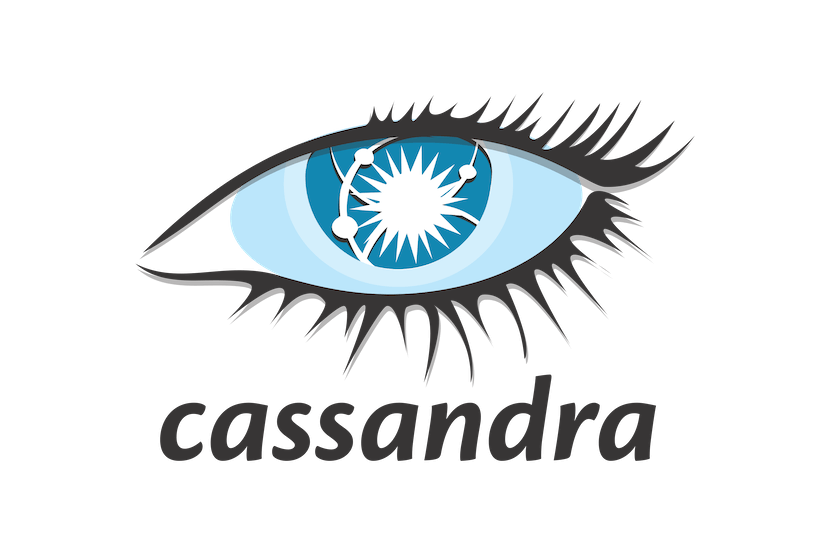
Managed Databases for Cassandra
Accelerate your business by deploying a managed Cassandra cluster in just a few clicks. This performance-orientated, open-source NoSQL database engine is perfect for processing more resource-intensive tasks, with uncompromised availability. We will manage the service — including configuration, maintenance, backup, high availability and updates — and you can focus on developing your application features.
Focus on your applications
With our Cassandra managed service, you can develop your features more quickly. This service will save you time, as we take care of the database administration and maintenance for you.
Control your budget
We apply transparent pricing to our solutions. You only pay for the use of your Cassandra database, which is billed by the hour. This will help you manage your budget.
Control your data
As part of our trusted cloud, this solution is compliant with the very strictest standards. We ensure that you retain control over your data.
Compare our Managed Databases for Cassandra packs
| Essential | Business | Enterprise | |
| Number of nodes | 3 nodes included | 3 nodes included | 6 nodes included |
| RAM per node | 7GB to 60GB | 15GB to 120GB | 15GB to 120GB |
| Total useful storage | 7GB to 60GB | 7GB to 60GB | 7GB to 60GB |
| Service Level Agreement (SLA) | No | 99.90% | 99.95% |
| Upgrade to a higher solution in 1 click | Yes | Yes | Yes |
| Support for SSTableloader features | Coming soon | Coming soon | Coming soon |
| Data encryption at rest and in transit (SSL) | Yes | Yes | Yes |
| Performance graph | Yes | Yes | Yes |
| Real-time backup to remote location | Yes | Yes | Yes |
| Backup retention period | 1 day | 1 day | 1 day |
| Point in Time Recovery | Yes | Yes | Yes |
| Connection pooling | Yes | Yes | Yes |
| Terraform Provider support (more information) | Yes | Yes | Yes |
| Private network connectivity (vRack) | 1Gbit/s to 4Gbit/s | 1Gbit/s to 4Gbit/s | |
| Private network speed (vRack) | Yes | Yes | Yes |
| High availability | Yes | Yes |
Managed Databases for Cassandra use cases
Performance-orientated applications
The Cassandra database management system (DBMS) is particularly fast. It is designed to handle even high volumes of data quickly. It is also distributed — so the more nodes the cluster has, the more processing capacity it can have. It is mainly used for applications that need to handle large datasets.
Modernisation of legacy databases
Managed Databases for Cassandra is a highly available service that includes backups. It also offers several extensions for enterprise deployments. Cassandra's resilience and wide range of features make it perfect for migrating to a NoSQL database from a standard one, to increase its processing capacity in the cloud.
Applications with high-performance reads
With its primary key (PK) direct access feature, you can access data directly without having to perform sub-queries. Many telemetry applications use Cassandra for this feature, as well as for its ability to quickly absorb high numbers of write requests.
Documentation and guides
Find out how to get started with the Managed Databases for Cassandra solution for your Public Cloud project.
Find out how to order your Managed Databases for Cassandra pack via the API
Features
Main features of Managed Databases for Cassandra
Distributed cluster
The Cassandra service can be deployed in a distributed cluster with horizontal scalability. This means that as more nodes are added, overall performance and availability will increase. This is in contrast to vertical scalability, which would require upgrading to a server with more resources each time.
Backup retention
We offer several service packs that meet your test, development and production needs. They include different backup retention periods for each of these uses.
High performance
For applications with a high number of writes, Cassandra can support them with its multi-master deployment model.
Managed Databases for Cassandra guarantees security and availability
Backups included
Each of our solutions includes a backup. It is performed in real time to a remote location by default, so you can restore your data from an earlier point in time.
High availability
With our Business and Enterprise solutions, several nodes are included in your Cassandra cluster by default. With our contractual SLAs for the cluster, your database’s availability is guaranteed.
TLS encryption
Cassandra uses the Transport Layer Security/Secure Sockets Layer (TLS/SSL) protocol to encrypt data at rest or in transit, in order to ensure the confidentiality of your data.
Replication nodes
By replicating your data via these nodes, you ensure redundancy and increase data availability.
Private network connectivity (vRack)
With our Business and Enterprise packs, you can restrict access to your database service via our private network, which also gives you up to 4Gbit/s bandwidth.
A Cassandra cloud service adapted to business requirements
Get the highest availability
With a cluster of 3 nodes available by default, the Enterprise pack gives you a guaranteed service level of 99.95%. You also get an additional guarantee for your most critical deployments.
Dashboard administration
The Managed Databases catalogue offers a dashboard integrated into the OVHcloud Control Panel. You can use it to manage your users and backups, as well as for tracking your query statistics, logs and metrics.
Real-time log visualisation
With this feature, you get an overview of your last 100 log lines. This simplifies the process of running diagnostics on your database, and optimises the running of your application.
Automate via Terraform (coming soon)
You can use Terraform tools and APIs to provision your SQL databases and their configurations. You can then save time on your deployments.

Managed Databases for Cassandra pricing
You receive a bill at the end of each month, which is calculated based on your database usage per hour. The price depends on the pack you have chosen: Essential, Business or Enterprise.
Other products
Your questions answered
What is Cassandra?
Apache Cassandra is an open-source NoSQL database management system (DBMS). This means that it stores the data as a key-value. It restructures data by storing and manipulating it. Cassandra has its own query language, the Cassandra Query Language (CQL). It works on all operating systems, making it a flexible solution.
What is Managed Databases for Cassandra?
It is a Database-as-a-Service (DBaaS) solution. We provide it as a turn-key service, and it is distributed between several of our Public Cloud instances. Since we take care of its management and administration, your job is made easier. We manage its configuration, maintenance, backup, security and scalability. In short, it is a cloud database service that saves you time.
Can I install Cassandra on Public Cloud instances myself?
You can do this once you have also downloaded and deployed the latest version of the Java JDK. However, you will need to perform all the database management and administration yourself. You will therefore not benefit from the features we provide in our turn-key service.
Why is Cassandra a popular database?
Cassandra was initially deployed by a major IT company, then graduated from the Apache Incubator in 2010. It is now the second most widely-used engine in the world, according to the latest censuses. This is due to the emphasis on both performance and high availability, with a distributed mode that can be used to minimise or even eliminate Single Points of Failure (SPOF).
Is Cassandra more efficient than MongoDB?
These two database engines offer different advantages, although both are NoSQL databases. One difference is the language used for queries. MongoDB uses a syntax similar to JavaScript, while Cassandra will be more singular, with the use of its own CQL.
There is also a difference in how you manage a cluster’s redundancy. MongoDB still has a master server, and secondary servers ready to take over. Cassandra uses a different model, based on multiple master nodes within the same cluster.
What is the difference between the Essential, Business and Enterprise packs?
Each represents a specific Cassandra pack on the Public Cloud, and includes variable features that suit different use cases. This could be for cluster size, the number of nodes in the cluster, network, scalability, or even high availability.
Is the data stored in Managed Databases for Cassandra shared with third parties?
No. Your service gets one or more Public Cloud instances running it, which are equipped with an individual dedicated storage space — so you control your own data.
Can I migrate to nodes with a higher capacity?
Yes, you can do this. If your RAM or storage space requirements increase, you can choose nodes with a higher capacity. However, please note that you cannot downgrade to a lower-capacity node.
Does Managed Databases for Cassandra have a backup?
Yes. We provide automated backups for each solution. However, the default retention policies differ depending on the pack you choose, so we recommend looking carefully at all of our solutions before making your choice.
Why do I need to pay to use Managed Databases for Cassandra when the service is based on an open-source licence?
We perform all the database management and administration tasks for you, so you don’t have to worry about setup, maintenance, security, backup or scalability. This managed service side is what we charge for, so you can hand over these additional tasks.
Can I connect Managed Databases for Cassandra with my Bare Metal server?
Yes. You can connect your database to your server via a public or private network. However, you will need to do this yourself, which means that you will also need to manage and administer your database on your own.


